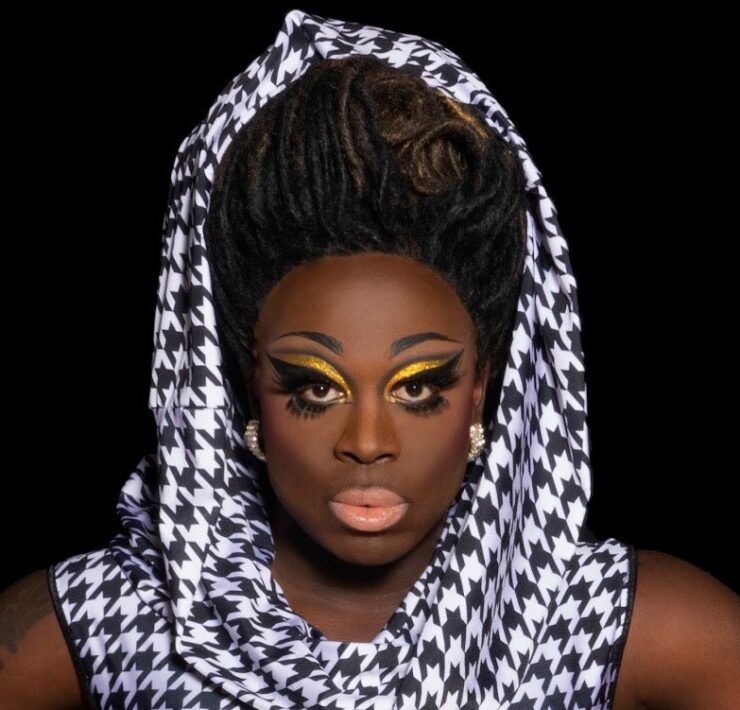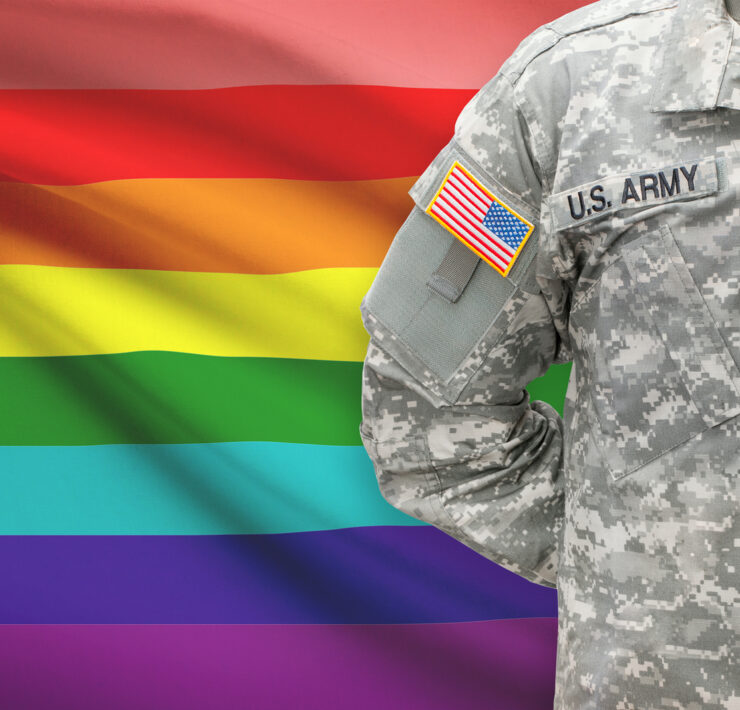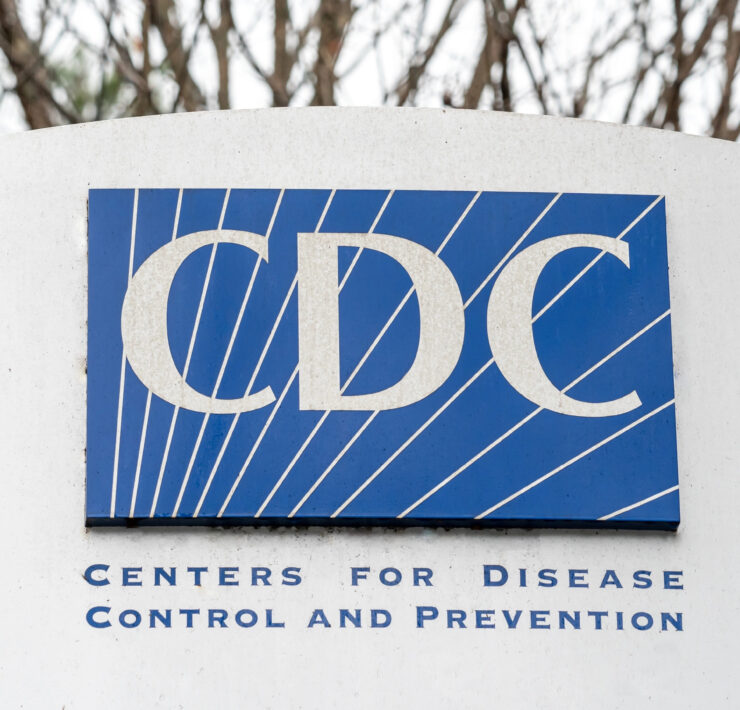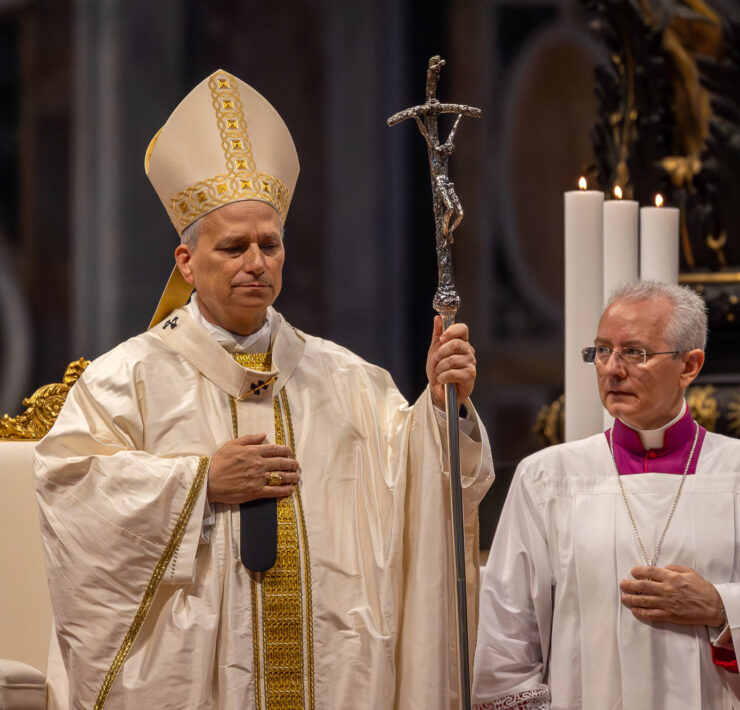Meet Genderqueer ‘Gilded Age’ Actor Ry Armstrong
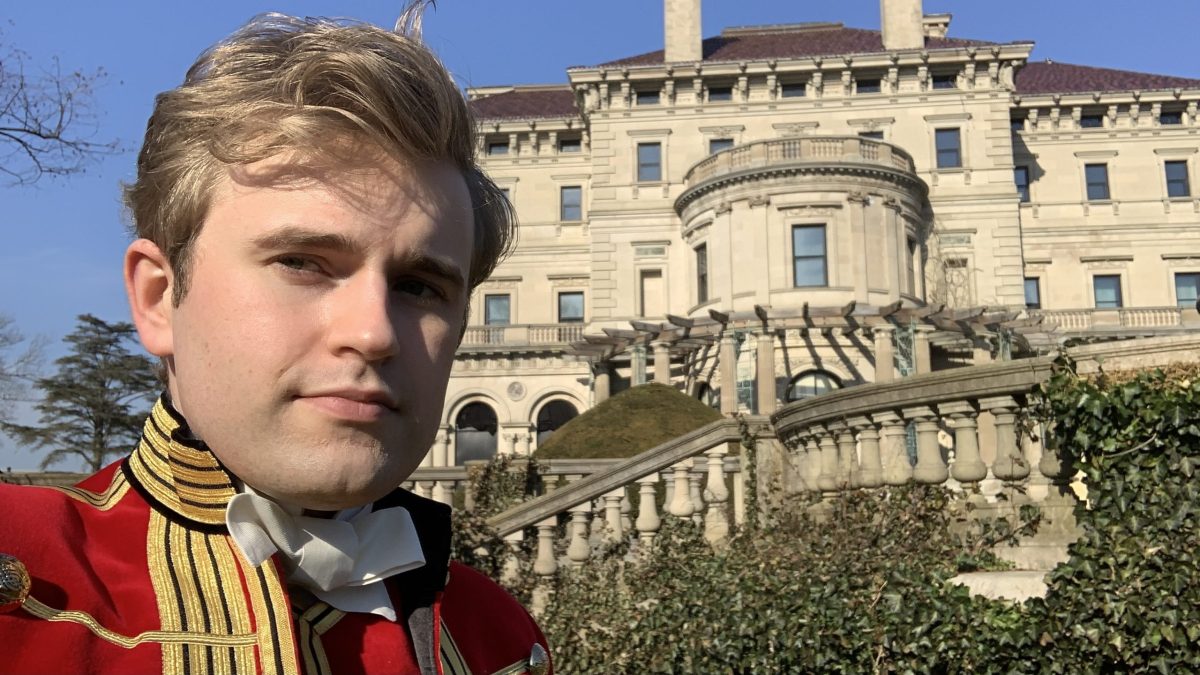
Denny Patterson is a St. Louis-based entertainment and lifestyle journalist…
A genderqueer actor born and raised in the Pacific Northwest, Ry Armstrong has always had a passion for the arts and storytelling. In addition to performing in off-Broadway and regional house productions, their focus lies on their international creative endeavors of producing and writing new works of art to be experienced on the stage and screen.
Most recently, Armstrong can be seen in The Gilded Age, the hit new HBO period drama penned by Downton Abbey creator Julian Fellowes. Originally cast as a backup extra, they were shortly bumped up to a co-star credit and is part of a core group of Russell household footmen that includes Lachlan Quertermous, Caleb Dicke, and Christopher Higgins. The series has received wide acclaim, especially for history buffs and theater fans, and it has officially been renewed for a second season.
Not only has The Gilded Age incorporated several Broadway stage actors into the show, but it has prioritized the contributions of numerous queer artists. Naturally, this made Armstrong feel right at home.
OFM caught up with the up-and-coming star to talk more about the series, their role, and what they hope to accomplish with a career in entertainment.
Let me begin by asking, what have you enjoyed the most about being a part of The Gilded Age on HBO?
Ah, wow. I think just seeing the enormous impact it’s already had. We started filming this in February 2020, so then to see it released two years later, it feels kind of surreal that it’s finally out. I think my favorite part is just watching all the artists come together to make something crazy. The number of people and the amount of money involved in this show is mind boggling. It’s like a small country.
So, being able to be part of the ensemble work for the downstairs actors, for the people that are part of the help in the Russell household, and watching Carrie Coon, Morgan Spector, Taissa Farmiga, and Harry Richardson make it all happen, it’s crazy. It’s like you’re a fly on the wall, but you’re also in the world. That was probably my favorite part of the whole experience.
In addition to the actors you just mentioned, the show stars several other Broadway veterans and big-name performers including Christine Baranski, Audra McDonald, Nathan Lane, and Cynthia Nixon. How has it been working alongside such greats?
Insane, but I really spent most of my time with Carrie and Morgan. I saw Cynthia, Christine, and Denée Benton across the street, and we never had a shoot day with Audra, but everything has been surreal. I do serve Nathan Lane actual kidneys on a platter. All the food is real. There is not a single thing that is fake in the entire show. They had a professional chef and his team on the studio lot, so that was all real goose eggs, caviar, and lobsters. The authenticity is crazy.
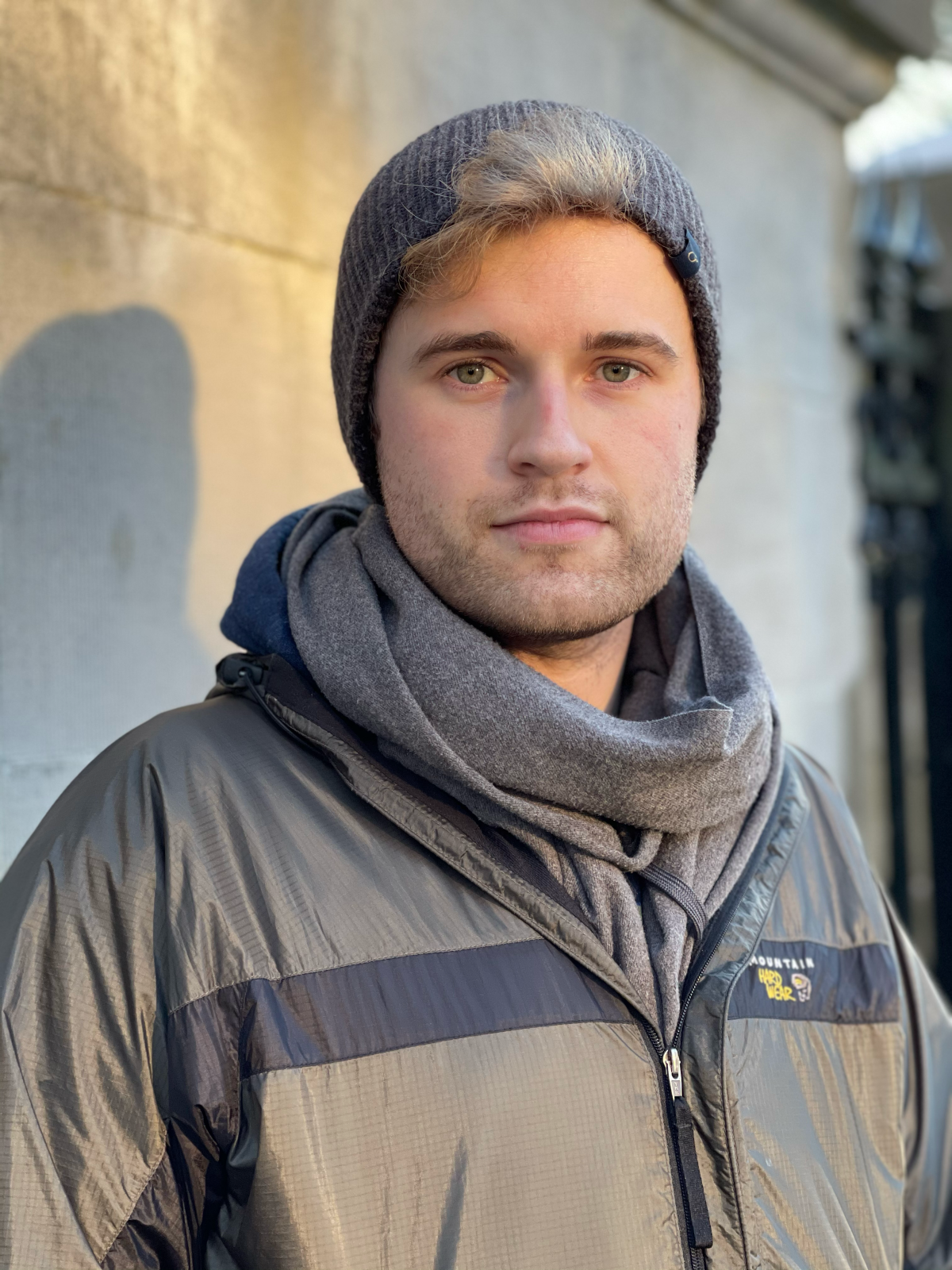
Can you tell us more about your character?
I was originally signed on for the show as an extra, as well as a swing. I was the replacement on-call person if someone didn’t show up. I was like, either way, it’s going to be fun, and I’m going to learn. On March 11, 2020, we were in etiquette classes, March 12, Broadway shut down, and March 13, the studio shut down. I was like, “Well, there goes that job.” But when we came back, they put four of us onto some contracts so we wouldn’t go to other studios, mitigate exposure, and risk the production.
That’s when I became part of a core group of footmen in the Russell household. So, my role started off as a very nothing thing, and then I became a co-star. I was down in the kitchen one day standing and waiting while they were setting up and changing, and Salli, one of the executive producers, she comes over to me and says, “Hey, do you want to be my footman for the day? I have a line I have to give to someone.” I was like, “OK! Then my pay goes from $200 to $2,000 for the day for three words.” (Laughs)
Does your character have a name?
We named him August just for fun, but that’s not a scripted thing. Some of the other footmen have scripted names, but as we’re hanging out and creating our characters, the four of us start to make backstories and play.
What makes The Gilded Age worth checking out, and what do you hope audiences take away from it?
I think it’s worth checking out because it’s not going anywhere. It’s set in the 1870s and 1880s, so it predates Downton and feels like a prequel, but we’re totally in a different country and world. I think it really showcases a side of Black America that we haven’t gotten to see in many other TV shows. The work Audra and Denée are doing are some of the best in the entire series, so I really hope Season Two leans into that more.
Other than the costume design and the details, it’s exquisite. Michael Cerveris and I were just standing around one day, and he was like, “I think this show is singlehandedly floating Broadway.” All the actors that are unemployed due to the pandemic; they are here surviving because of this show. If you’re a fan of theater, maybe this will make you a fan of TV.
Were you at all familiar with The Gilded Age before signing on with the show?
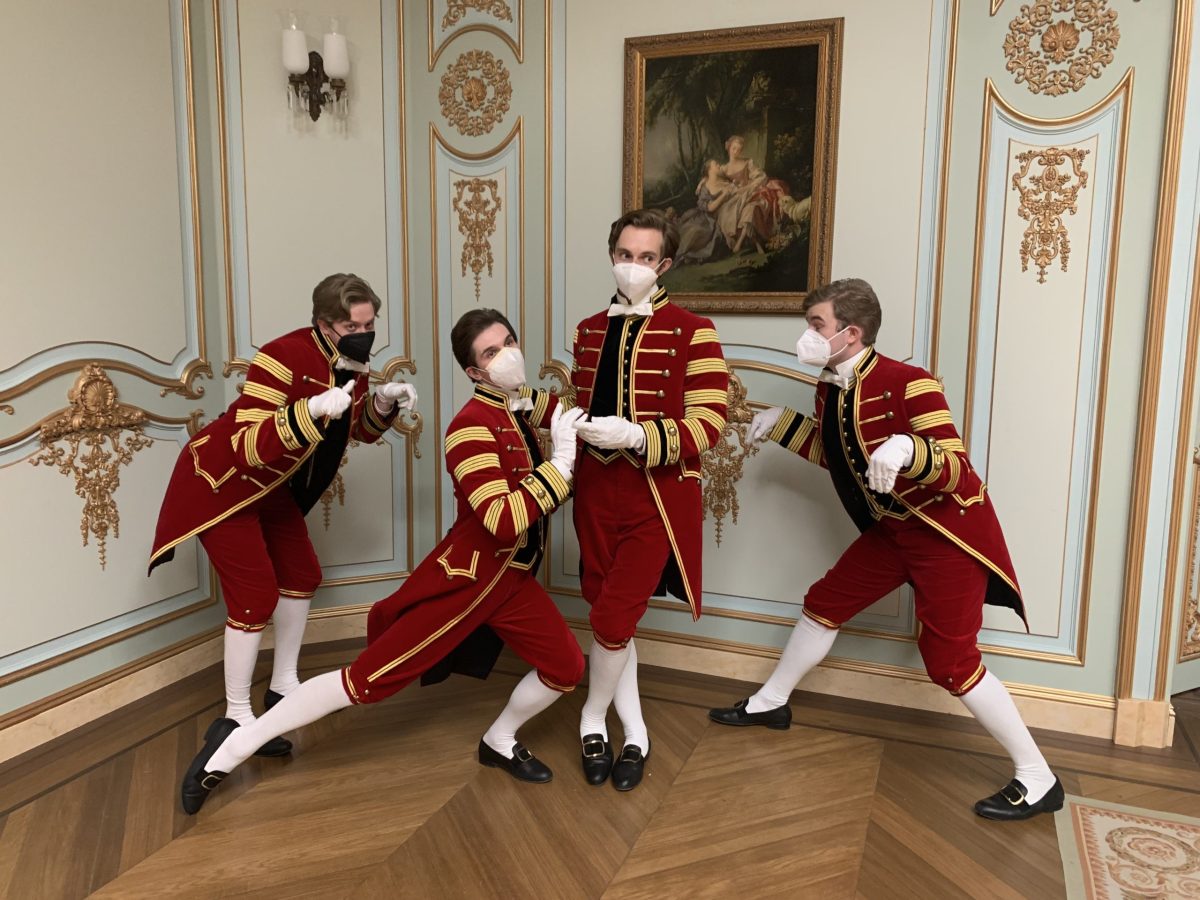
We knew nothing. Even for the background, they auditioned us for three hours. We had to learn how to serve like the French and English. We had to carry tea pots, and we were given notes like you can’t actually touch the tea pot because it would be scalding hot, and (you) would receive a third-degree burn. It was pretty fun. I’m a theater actor, and now I’m being thrown into this new world that I absolutely fell in love with.
Is there an episode that was your absolute favorite to film?
The last episode when we are in Newport—It’s earthshattering and just insanely beautiful. I don’t have words for these shots.
In addition to intentionally employing stage actors, the production has also prioritized the contributions of numerous queer artists. How meaningful is that to you?
It means a lot to me. There’s a moment that I think about when we were downstairs, and one of my friend actors, Caleb Dicke, he and I were playing cards as they were doing the scene. In-between takes, I’d make jokes like, “Hey, two queens playing with queens.” Stupid stuff like that, and the whole crew laughed and was just incredibly inclusive. I felt super comfortable in myself and authentically available to make this world.
Plus, the fact that there’s a queer storyline with the John Adams character, I think that’s beautiful. Claybourne Elder is on Broadway in Company right now, and he’s amazing. It just means a lot to me, and I don’t know how it happened, but all the core Russell footman are queer. Like, all of us identify as queer in some form or fashion. It was a beautiful group of the four of us who could bond and stay with each other if someone was scared of testing positive for COVID.
Have you always had a passion for acting and performing?
Yes! I grew up doing summer camps and children’s theater in Seattle; that’s where I’m from. I didn’t really understand you could do it for a living until I did this program at The 5th Avenue, and I was like, “Oh, I can do this. This could be what I do with my life.” Until you are mentored by professionals that do it, it doesn’t click that this is a thing.
You are genderqueer. Has this presented any challenges working in the entertainment industry?
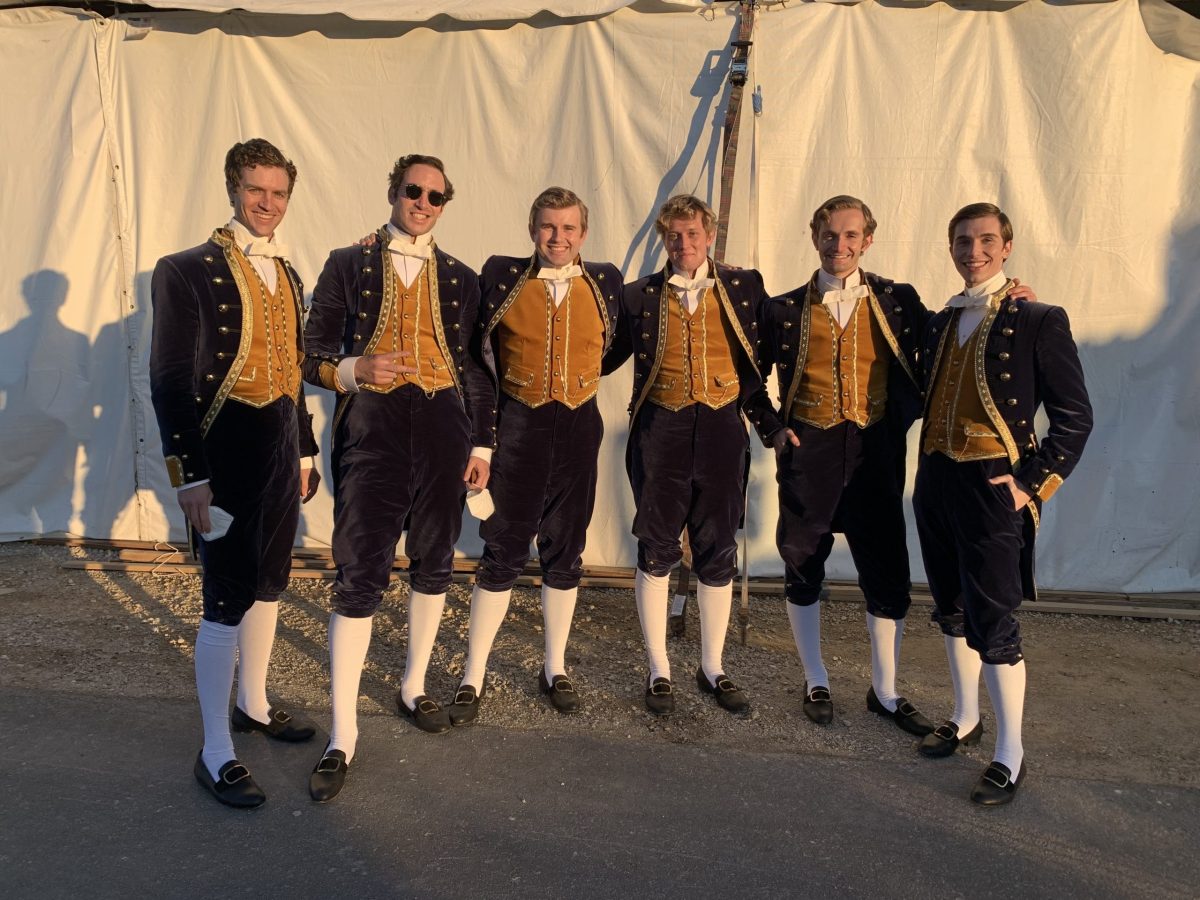
Yes (laughs). I always knew I was queer, but when you’re stuck with your thoughts in the pandemic, and you’re journaling and just with yourself, I really spent time going inward and found that this was the truest and most authentic me, which was beautiful and scary, but still new and strange. Now, I’m doing a concert series at The Green Room 42 about being genderqueer and inviting guest who are GNC into that space. I’m throwing all my artistry into it.
As an actor, you kind of have to chameleon, and this is why I don’t agree with being labeled nonbinary. I think we are already trapped in a binary. The pessimistic self of me is like, I walk into Duane Reade, and I see a makeup section that’s marketed to women, and I see a men’s section that’s marketed to whatever’s there. I think we’re stuck in it. I would love to be nonbinary, but I don’t think we can escape the spectrum.
I don’t want to ever limit myself as an actor, and there are times when I have to be mutable along that thing, so I become a very masked version of myself when I’m playing this footman from the late 1800s, but we don’t see behind closed doors what these footmen are doing at night or whatever. There’s probably some debauchery going on.
What are some future goals you hope to achieve as an actor?
I want to be a series regular on a TV show in the next five to 10 years, and I’m writing a bunch of projects right now. I am workshopping a new play that I will hopefully go up in New York this fall, an Off-Broadway production. I’m constantly juggling a million projects as a writer and producer too, but I think this experience in The Gilded Age has really opened my eyes to what this other world is that’s not New York theater. That’s where I want to be creating. I love theater, and it will always be the foundation of my heart, but I want to explore new rooms in this household that is me.
Aside from acting, you are also an environmental activist. Can you talk more about that?
I work with Extinction Rebellion, and we do non-violent activism and protests. Like, I’ve been in human chains around Chase because Chase is one of the worst banks to have your money in in terms of fossil fuel divestment. I did this thing two years ago called #SevenYearsLeft where I put myself in a recycling bin filled with water that was colored like oil and surrounded by plastic. I was there for four-and-a-half hours outside. It was supposed to be 60 degrees, and it ended up being 20 degrees. I try to align my performance art with my activism, but it’s hard. It’s a systematic thing that everyone’s going to be facing in the next 10 years.
Before we wrap up, are there any other upcoming projects or anything else you’d like to mention or plug?
If you want to check out my Green Room 42 show, it’s called They // She // He, which are my pronouns, and it’s a genderfluid show with games and improv, and it’s in a celebratory, safe space that I haven’t seen in the cabaret scene in New York. That’s really the forefront thing that’s coming up May 9. Other than that, I’m shopping around a bunch of pilots and working on this play called Neglect for workshopping, and we’ll see. This is going to be a crazy year.

Stay up-to-date and connect with Armstrong by following them on Facebook, Twitter, and Instagram @ryontheryse, or visit their official website, ryarmstrong.co. All episodes of The Gilded Age are streaming on HBO Max. Click HERE to purchase tickets for They // She // He.
Photos courtesy of Ry Armstrong
What's Your Reaction?
Denny Patterson is a St. Louis-based entertainment and lifestyle journalist who serves as OFM's Celebrity Correspondent. Outside of writing, some of his interests include traveling, binge watching TV shows and movies, reading (books and people!), and spending time with his husband and pets. Denny is also the Senior Lifestyle Writer for South Florida's OutClique Magazine and a contributing writer for Instinct Magazine. Connect with him on Instagram: @dennyp777.





